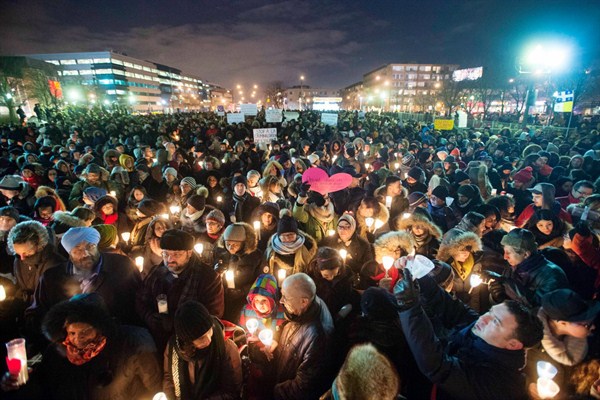The massacre at a Quebec City mosque on Sunday has taken a backseat to a news cycle dominated on the other side of the border by the turbulent start of Donald Trump’s presidency. The shooting, which killed six worshippers and injured 19 more, followed the implementation of Trump’s executive order to bar individuals from seven Muslim-majority countries from entering the United States. In response to Trump’s travel ban, Prime Minister Justin Trudeau took to social media on Saturday to declare that Canada’s arms were open to any rejected refugees unable to enter the United States. The following evening, 27-year-old Alexandre Bissonnette—who was known to authorities for making extreme, far-right statements online—entered the mosque and opened fire. Trudeau immediately called the incident a terrorist attack. On Monday, Bissonnette was charged with six counts of murder.
The attack has shaken Canada, which is often praised as a model for multiculturalism and has strict gun laws. But Sunday’s killing spree was not in isolation, nor is Canada immune from the strain of intolerance, particularly toward Muslims, that has gained momentum in the West. In fact, the Quebec mosque had experienced a series of hate crimes over the past year: In July, a pig’s head was left at its entrance, and mosque leaders installed security cameras after receiving hate mail and seeing swastikas painted on the door.
The number of anti-Muslim hate crimes reported to police in Canada more than doubled from 2012 to 2014. A defining issue in the 2015 federal election campaign was a controversial ban on Muslim women wearing the face-covering niqab during Canada’s citizenship oath ceremony, which was challenged in court. “The ban, which was supported by former Prime Minister Stephen Harper, was largely viewed as violating the Charter,” says Toronto-based journalist Adam Rasmi, referring to Canada’s bill of rights. “But the Harper government thought it would play well among many Canadians in Quebec.” The ban was later dropped after Trudeau was elected.

